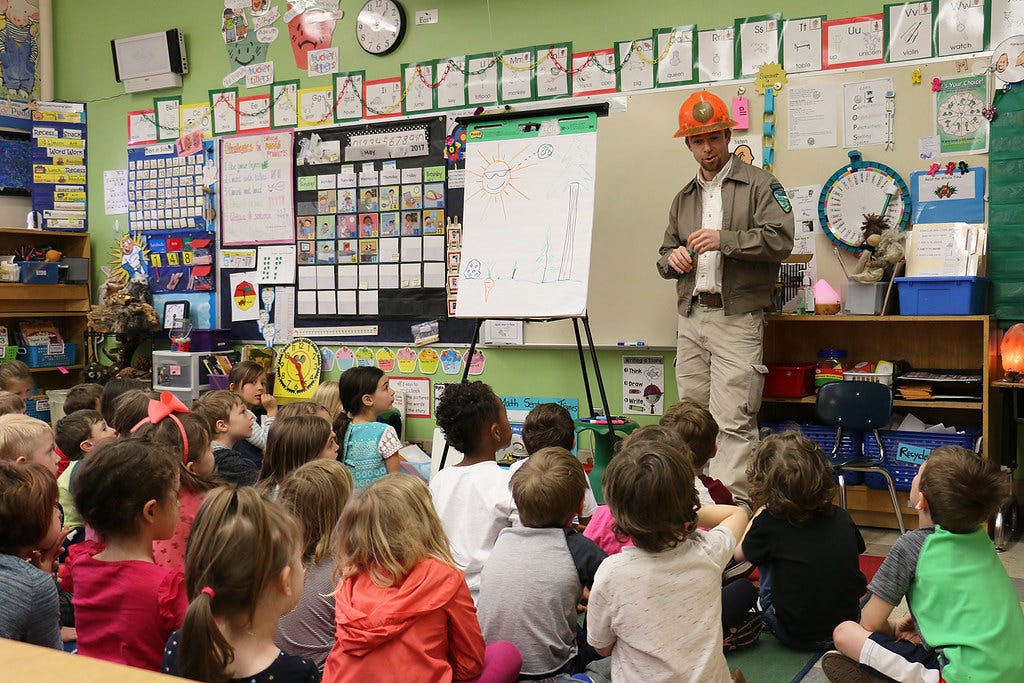Mark Hass: Some parting thoughts
Thank you for the greatest honor of my life. Thank you for allowing me to help make Oregon a better place.
Mark Hass is a former Oregon State Senator.

Dear Friends,
Twenty years ago, I arrived at the Capitol wide-eyed and eager as a new state representative. It seems like yesterday. Yet as I compose this final newsletter, I remember those times were also much different. It was before Facebook and smartphones and before 9/11 and Hurricane Katrina. Vera Katz was Mayor of Portland. Republicans controlled the Oregon Legislature.
Times — they have changed. For one thing, Oregon now has a million more people — 4.25 million residents.
Nowhere grew faster than my community in Washington County. Oregon’s natural beauty and technology jobs lured newcomers. Ironically, this rapid growth threatened the very quality of life that drew them here in the first place.
Especially in our schools.
This is why I ran for the legislature — to try to reverse the backward slide caused by voter-passed tax cuts and harsh economic recessions. I made it my mission to convince fellow lawmakers that a strong education system is the long-term solution to the issues they were working on, like reducing poverty or shoring up the economy.
My first big education bill sought to institute full-day kindergarten in Oregon — a change that would pay big dividends for students, especially those from difficult backgrounds. But I quickly learned that I needed more than a rabble-rousing speech and a new suit to pass legislation.

I failed to pass full-day kindergarten three sessions in a row. Discouraged, I questioned whether I even belonged in the legislature. But during these years I learned I could convert people to my ideas if I listened to their ideas. Sometimes this meant making changes to win their votes. Over time, I saw the virtue of passing laws through collaboration — as opposed to holding out for the perfect bill and watching it die.
The legislature finally passed full-day kindergarten in 2011 — ten years after I first introduced it.
In 2013, the Senate Education Committee spearheaded a major restructuring of Oregon’s universities. Although the changes were significant, the legislation passed with little fanfare.
But as I worked on this, I saw the real problem with college wasn’t governance: it was that young people just couldn’t afford it. I was disheartened to learn a majority of Beaverton High School graduates were not going to college.
I also discovered there were a few community colleges around the country that actually waived tuition, making it free. They were funded by local grants and philanthropy, but I wondered if it could happen on a larger scale.
Thus was born the Oregon Promise.
By 2015, others were exploring the idea of free community college, including President Barack Obama. In May, he chose the Nike campus as the backdrop to promote his Trans-Pacific Partnership trade deal. I went to the rally and, once there, was surprised to be invited to a reception. I soon found myself in a parade line to get a picture taken with the president. In my 20 seconds of time, President Obama asked me what I was working on. I told him about the free community college bill.
When I arrived at my Capitol office the next day, I was stunned to learn the White House had been calling, saying the boss wants to help pass our bill. We gave them phone numbers of legislators who were on the fence. White House staffers began calling the next day. Turns out, there’s magic in the words, “I’m calling from the White House.”
The bill passed overwhelmingly. And now, in its fifth year, the Oregon Promise has been a game changer for thousands of high school graduates as they study to become paramedics, dental hygienists, diesel mechanics and other vocations that will give them a path to the middle class.
Not long after the Nike visit, President Obama appointed me to the College Promise Commission, chaired by Dr. Jill Biden.
I have always served on the House or Senate Revenue Committees and developed a deep but strained relationship with Oregon’s volatile tax code. The late Senator Ben Westlund described it best: “It brings in too much in the good times and not enough in the bad times.”
The list of those who tried and failed to modernize the system to better fund schools is a who’s who of Oregon politics, from governors Tom McCall to John Kitzhaber.
In 2018, I was part of a special committee which spent a year barnstorming the state, listening to parents, students and business leaders explain what they wanted in Oregon schools. Then we tried to find a way to finance the committee’s top recommendations. As chair of the Senate Revenue Committee, I wanted to build on a plan we had been studying for four years: It established a business tax on sales by large companies and provided a modest personal income tax cut for working people. It would generate more than $1 billion annually for K-12 education.
The Student Success Act passed in 2019.
It wasn’t the top-to-bottom tax reform that Oregon needed and it wasn’t as much money as some educators wanted. But it was the largest school funding measure in modern history and I finally felt like one of the goals I set for myself 20 years earlier had been achieved.
I’m proud to have been part of that momentous bill, as well as Full Day Kindergarten and the Oregon Promise. But I’m not highlighting these to pat myself on the back — quite the opposite. A legislature by definition is a deliberative body of people. It’s not the place for solo acts. The sum of individuals working separately is no match for the results of people working together.
So, as my state senate term comes to an end next week, I want to say thank you. There was never a day in the last 20 years I took for granted.
Thank you for the greatest honor of my life. Thank you for allowing me to help make Oregon a better place.

************************************
Send feedback to Mark:
@MarkHassOregon
Keep the conversation going:
Facebook (facebook.com/oregonway)
Twitter (@the_oregon_way)
Check out our podcast:
#112



